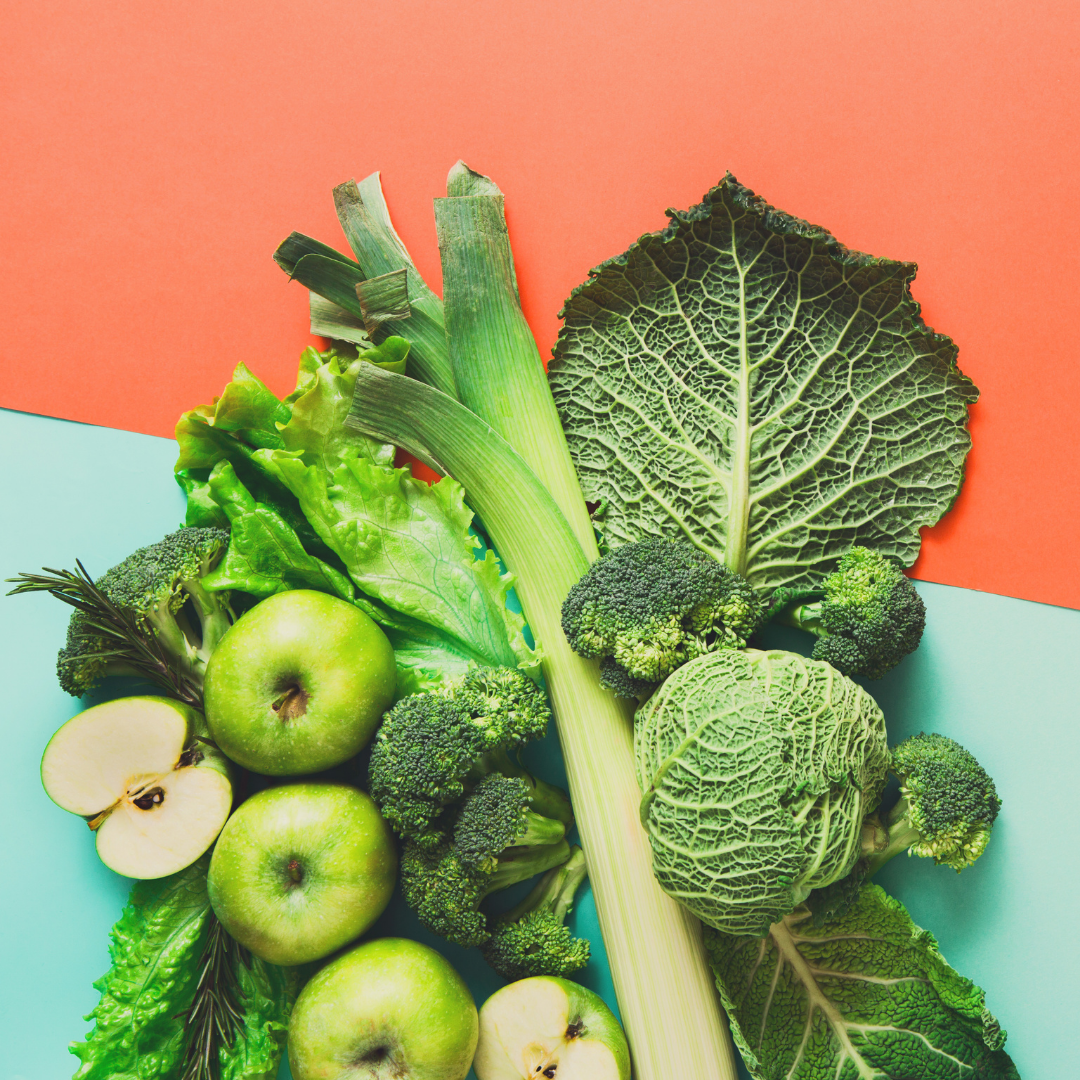
A nutritious diet sets the foundation for our overall health and wellbeing. This blog highlights a few of the key micronutrients involved in maintaining the health of our skin and their plant-based food sources. Micronutrients include vitamins and minerals that are necessary to support energy production, growth, immune function and other processes. Some of the key vitamins that are involved in maintaining the health of our skin include:
Vitamin E (tocopherols): The primary antioxidant in our skin. Vitamin E is an antioxidant that helps prevent lipid peroxidation and collagen X-linking which are involved in skin ageing processes.
Food sources include: Nuts, seeds, some oils and green, leafy vegetables
Vitamin C – Works synergistically with Vitamin E and must be obtained from our diet. Vitamin C promotes the gene expression for collagen production and has skin protective actions.
Food sources include citrus fruits and vegetables
Vitamin A and carotenoids– Both forms of vitamin A are converted to retinol by the liver. Retinol supports skin health by stimulating skin cell turnover.
Food sources include: Leafy green, orange and yellow vegetables (Betacarotene)

Polyphenols – There are literally 1000’s of plant polyphenols, all packed with antioxidants that exert cell protective effects. Regarding skin health, some of the well-researched polyphenols include green tea catechins, anthocyanins found in red, purple and blue berries, resveratrol found in red grapes and betalain found in beetroots. Polyphenols prevent oxidative stress and DNA damage.
Food sources include many fruits, vegetables, spices, herbs, nuts and seeds
PUFA’s (Polyunsaturated Fatty Acids) and MUFA’s (Mono-unsaturated Fatty Acids) – A high intake of these plant-based oils has been associated with reduced inflammation, decreased skin dryness and atrophy and slower skin ageing.
Food sources include: Nuts, seeds, olives, virgin olive oil, sesame seed oil, avocado
Copper – Essential for the maintenance of healthy skin and connective tissue and assists in wound healing. Copper deficiency is not common in Australia.
Food sources: Fresh and processed foods. Grains, nuts, legumes, dark chocolate
Zinc – So important for the health of our skin, zinc exerts anti-inflammatory and anti-acne effects and supports wound healing.
Food sources include: Beans, legumes, mushrooms, tofu, nuts
You are encouraged to increase the diversity of nutrient-dense, whole foods in your regular diet so that you may optimise your nutritional intake of these key micronutrients to support skin health.
References
Solway J, McBride M, Haq F, Abdul W, Miller R. Diet and Dermatology: The Role of a Whole-food, Plant-based Diet in Preventing and Reversing Skin Aging-A Review. J Clin Aesthet Dermatol. 2020;13(5):38-43.
Galland L. Diet and inflammation. Nutr Clin Pract. 2010;25(6):634–640.
Rahmadi A, Steiner N, Munch G. Advanced glycation endproducts as gerontotoxins and biomarkers for carbonyl-based degenerative processes in Alzheimer’s disease. Clin Chem Lab Med. 2011;49(3):385–391.
Schagen SK, Zampeli VA, Makrantonaki E, Zouboulis CC. Discovering the link between nutrition and skin aging. Dermatoendocrinol. 2012;4(3):298–307
Hinek A, Kim HJ, Wang Y et al. Sodium L-ascorbate enhances elastic fibers deposition by fibroblasts from normal and pathologic human skin. J Dermatol Sci. 2014;75(3):173–182.
Scalbert A, Manach C, Morand C, Rémésy C, Jiménez L. Dietary polyphenols and the prevention of diseases. Crit Rev Food Sci Nutr. 2005; 45(4):287-306.
Cosgrove MC, Franco OH, Granger SP, Murray PG, Mayes AE. Dietary nutrient intakes and skin-aging appearance among middle-aged American women.. Am J Clin Nutr. 2007 Oct; 86(4):1225-31.